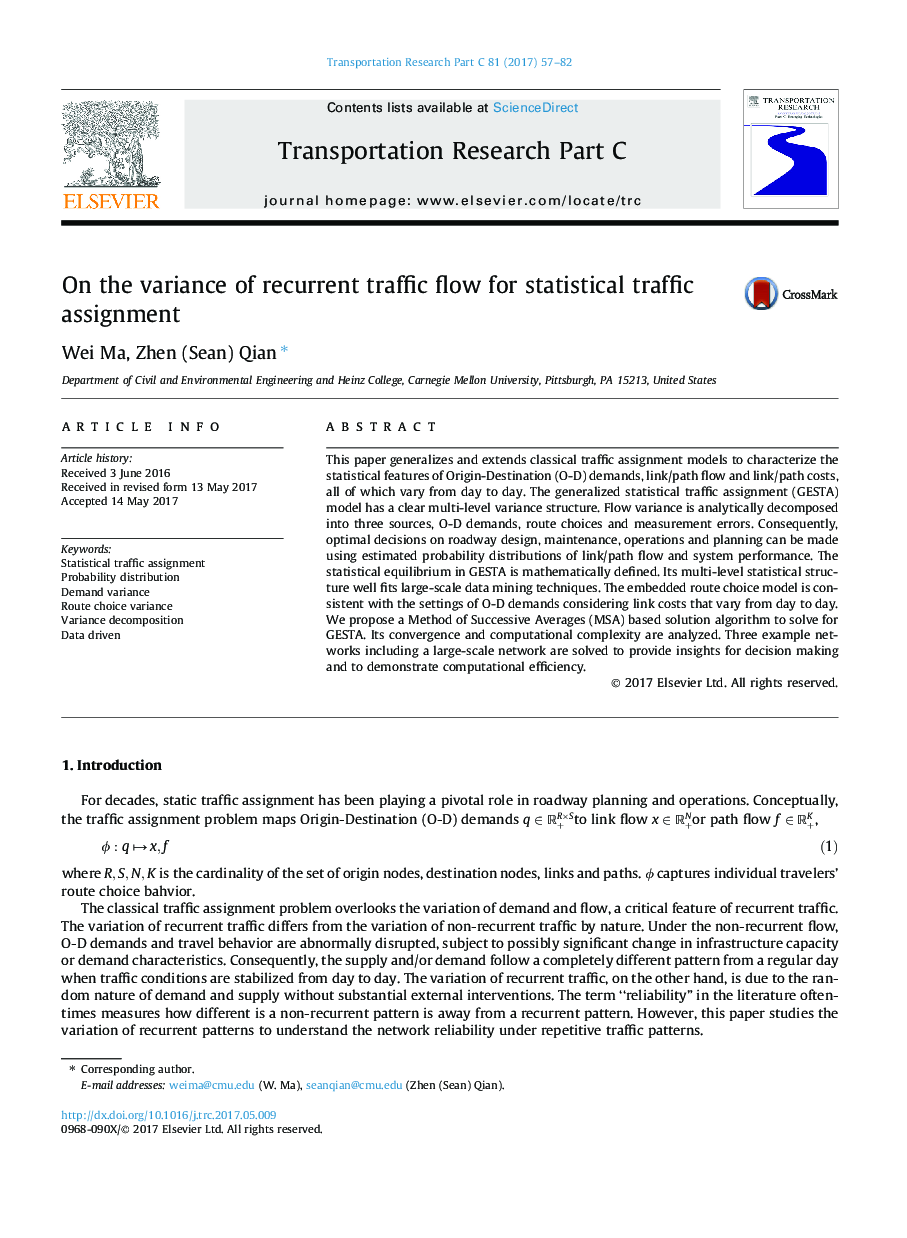| Article ID | Journal | Published Year | Pages | File Type |
|---|---|---|---|---|
| 4968406 | Transportation Research Part C: Emerging Technologies | 2017 | 26 Pages |
Abstract
This paper generalizes and extends classical traffic assignment models to characterize the statistical features of Origin-Destination (O-D) demands, link/path flow and link/path costs, all of which vary from day to day. The generalized statistical traffic assignment (GESTA) model has a clear multi-level variance structure. Flow variance is analytically decomposed into three sources, O-D demands, route choices and measurement errors. Consequently, optimal decisions on roadway design, maintenance, operations and planning can be made using estimated probability distributions of link/path flow and system performance. The statistical equilibrium in GESTA is mathematically defined. Its multi-level statistical structure well fits large-scale data mining techniques. The embedded route choice model is consistent with the settings of O-D demands considering link costs that vary from day to day. We propose a Method of Successive Averages (MSA) based solution algorithm to solve for GESTA. Its convergence and computational complexity are analyzed. Three example networks including a large-scale network are solved to provide insights for decision making and to demonstrate computational efficiency.
Related Topics
Physical Sciences and Engineering
Computer Science
Computer Science Applications
Authors
Wei Ma, Zhen (Sean) Qian,
